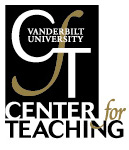The World of the University
Hands on Experience
The role of service in
faculty responsibilities can vary among colleges and
universities. At some schools, service plays a major role
in the work of a professor, while at other institutions
service constitutes a minor part of the traditional triad
of “research-teaching-service.” Furthermore,
how “service” gets accounted for can also vary.
At some schools, service mainly consists of serving on
department, college, or university committees. That is,
service relates to the operation and functioning of the
institution. At other schools, service also can include
taking one’s scholarly expertise into the surrounding
community. Often referred to as “civic
engagement,” this type of service connects academic
work with community needs. “Service-learning”
occurs when students in a course are involved in a civic
project and the engagement activity reinforces concepts
covered in the course. For some faculty, service to the
profession can also play a major role in their overall
responsibilities.
The objective of the community service experience in F2P2 is to
explore the role of faculty outside of the classroom
through a committed involvement. Participants can choose to
fulfill this requirement by concentrating in one of the
three areas of service:
1. Service to the university
community: The activity should allow the participant to
learn and make a contribution to the university outside of
his/her normal teaching and research duties in his/her
discipline. The community service experience need not take
place on campus, but it must be directly involved with some
university unit. Examples of appropriate activities include
working with student organizations, assisting an
administrative unit, serving on a committee in a leadership
role, addressing a departmental need, or arranging public
forums on university-related issues.
2. Service to the broader community: The activity should
allow the participant to use his/her scholarly expertise in
the surrounding community and should meet a real community
need. Examples include: English and education participants
tutoring in literacy programs, science participants
volunteering to work with Vanderbilt Student Volunteers for
Science, foreign language
participants talking about culture and language to
community or school groups, religion participants speaking
to a group about an area of scholarly religious expertise.
Helpful sources of information to get ideas and to get
connected with community groups include:
3. Service to the professional community: The activity
should allow the participant to contribute to his/her
professional discipline by assuming a leadership role or
serving on a committee in a professional organization.
General guidelines for the Community Service project:
-
Need not take place on campus,
-
Should include at least 10 hours of service,
-
Should not be part of a paid position (however, an
honorarium can be accepted)
.
Use these prompts to shape and plan your Community Service
experience:
-
What do I hope to learn from the experience?
-
What will be my specific role/duties?
-
What do I hope to make of the experience for others
(contributions)?
-
What other individuals would I like to work with?
-
What personal/professional objective do I hope to
achieve?
-
How do I plan to apply this experience?
-
What role other than student/teacher will I assume in
this experience?
-
How will this experience contribute to my development as
a teacher, scholar, and member of the community?
In the F2P2 notebook, include the following:
-
1-page summary of the Community Service project (may be
posted on the F2P2 website as model for other
participants)
,
-
Form 2: Event Attendance Form.


